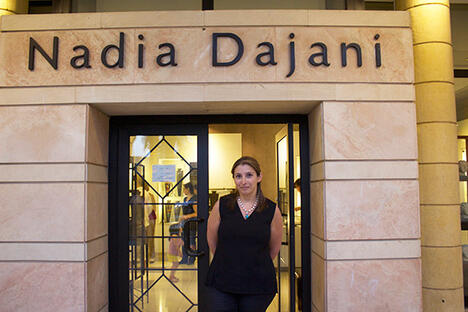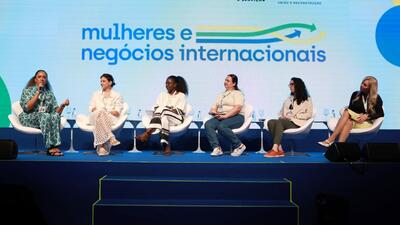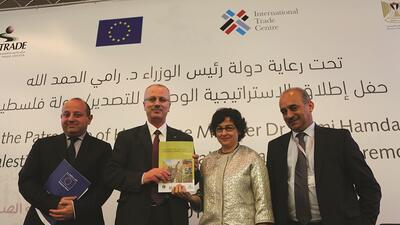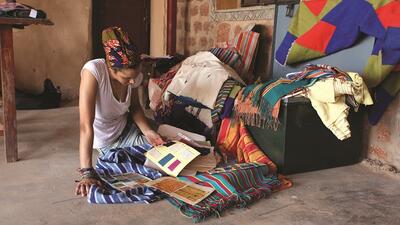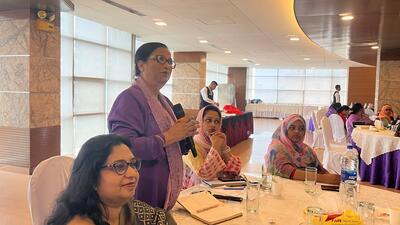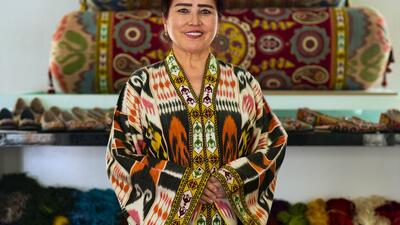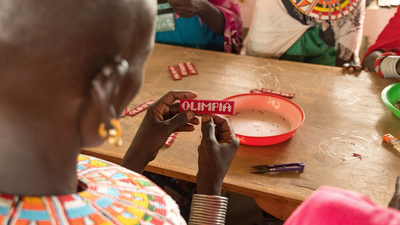Designing jobs through jewellery making
Nadia Dajani is a Jordanian designer whose eponymous business produces more than jewellery. When women approach her asking for money, the former architect offers them work instead.
‘I prefer to have them gain regular income and not just hand-outs, and also prefer for them to receive money that is well earned,’ Dajani says. ‘This motivated me to teach them basic skills and employ them.’
The company exists as a vehicle for job creation, Dajani says. Her workshop in Amman, Jordan, employs 18 women, all of whom have received training in the art of jewellery making. Their creations, inspired by Arabic culture, range from silver bracelets to copper-wire scarf necklaces and glassbeaded flower rings.
‘On the one hand the items are fashion statements, which have to relate to the human body, and on the other hand they are statements in themselves, seeking to relay messages and to stand on their own and in their own right,’ Dajani says.
Each item is accompanied by a printed card that tells a story. The Magic Square necklace, for example, features nine numbers arranged so that when they are added up in any straight line the total always comes to 15. The individual numbers symbolize things such as wealth, protection, life and stabilization.
These messages are in line with the work of the company, which enables its women artisans to provide better living conditions for their families.
‘The impact on the family is immediate,’ Dajani says. ‘The household spending money increases, as does the quality of nutrition. Children all go to school clean and properly attired.’
To reach a wider client base, the company participated in trade shows and identified locations where its products would fit.Those included the Louvre Museum’s gift shop in Paris, a placement worked out in cooperation with the International Trade Centre (ITC).
‘ITC was instrumental in assisting with the Louvre Museum and we are now targeting a couple of other museums with ITC too,’ Dajani says.
Dajani is looking to expand her business, overcoming challenges such as identifying the paperwork needed for exporting her products to different countries and understanding the tariffs in those locations. The simple skills taught to her employees are going a long way towards making a difference in their lives over time.
‘Most importantly, they get motivated seeing that hard work earns money, which raises the standard of living,’ she says. ‘Hopefully the mothers will set an example for future generations.’




